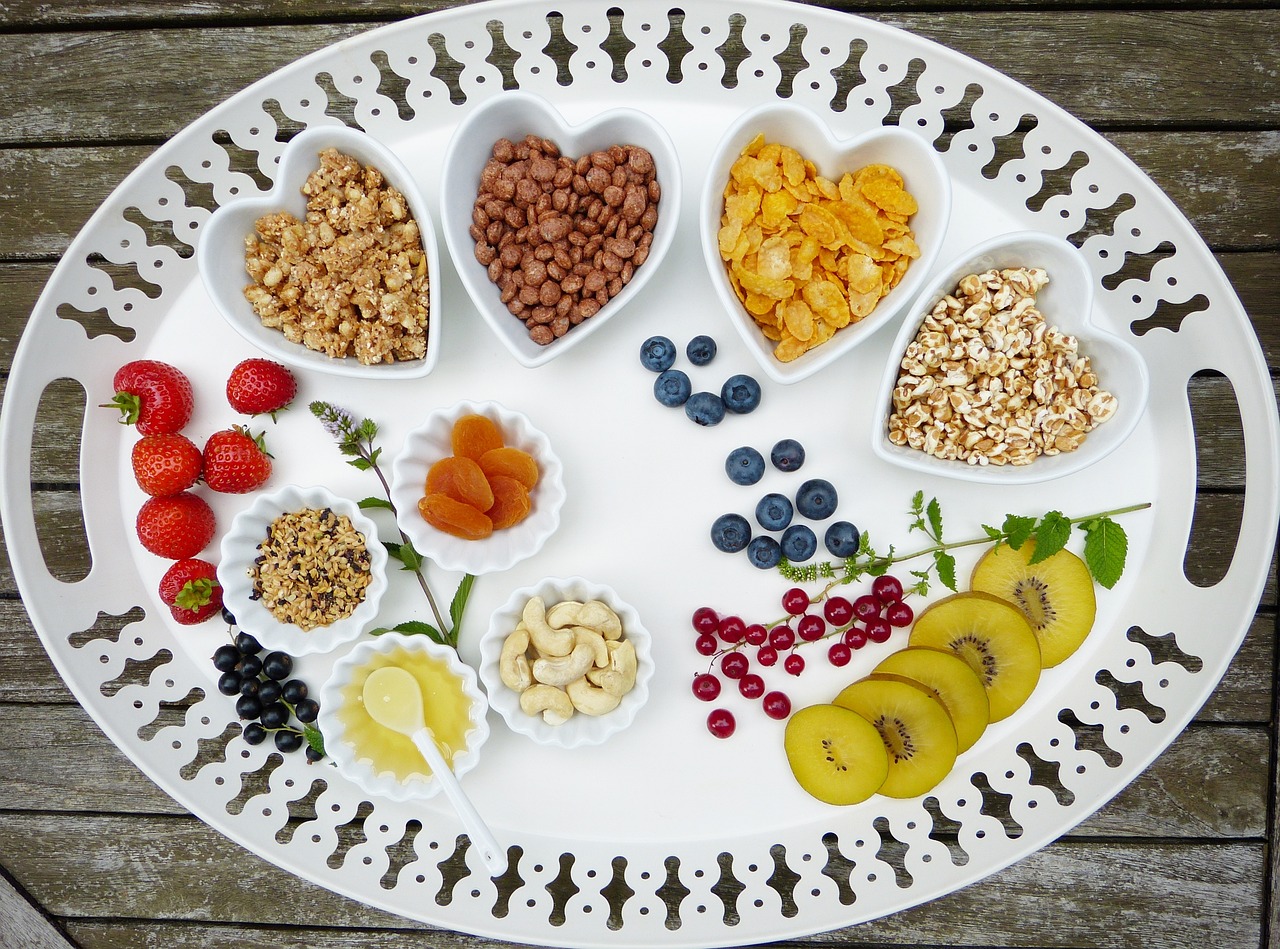An upset stomach can be a frustrating and uncomfortable experience, but the right foods can help alleviate symptoms and promote healing. This article will discuss some of the best foods to eat when dealing with an upset stomach, including options for those on a bland diet and those looking for more flavorful options.
We will also touch on foods to avoid if you’re experiencing stomach troubles. Making smart food choices can help alleviate discomfort and get you back to feeling like yourself in no time.
Good Foods to Eat with an Upset Stomach
Many foods are good to eat when you have an upset stomach. These include bananas, crackers, eggs, and creamy peanut butter. If you have a bowel movement, try to drink plenty of clear liquids.
Spices such as ginger and chamomile can also soothe the stomach. Also, stick to foods that are easy to digest. A stomach ache occasionally affects almost everyone. Constipation, diarrhea, or vomiting are some of the most typical symptoms, as well as nausea and indigestion.
Various factors may cause an upset stomach, and the underlying cause can affect the treatment options. Fortunately, a wide range of meals can calm an upset stomach and hasten your recovery.
Eggs
There are many types of eggs, some of which may help you with your upset stomach. Scrambled eggs, for example, are one of the best things to eat with an upset stomach. They are bland food to consume and gentle on your stomach during digestion. Just be sure to avoid over-seasoning them.
Eggs are a great source of protein. Eggs contain very few carbohydrates and are rich in protein and good fats. Some people experience constipation after eating eggs, but this can easily be offset by adding bran, prune juice, or psyllium. Constipation caused by eggs is a small price to pay for the nutritional benefits they provide.
Creamy Peanut Butter
Natural peanut butter is one of the best foods to eat when suffering from an upset stomach. It’s high in magnesium and vitamin B6 and can help calm the digestive tract. Try spreading it on crackers or white bread.
Although a high-calorie treat, creamy peanut butter has many healthy properties. It is high in monounsaturated fats, plant-based protein, magnesium, folate, and vitamin E. However, it should be consumed in moderation. Avoid overeating this jarred spread.
Bananas
Bananas are good foods to eat when you have an upset stomach. They’re high in potassium, which helps replenish the electrolytes lost in diarrhea and vomiting. They’re also rich in fiber, which keeps the digestive system regular.
In addition, bananas contain vitamin B6, which helps reduce bloating due to fluid retention, and magnesium, which relaxes the muscles. Other food for an upset stomach includes low-fat milk, yogurt, and pudding.
These are gentle on the digestive system and provide a good protein dose. You can also eat baked potatoes, boneless chicken breast, and fruit and vegetables.
Papaya
Papaya, commonly referred to as pawpaw, is a tropical fruit with delicious orange flesh that some people use as a home treatment for indigestion. Papain, a potent enzyme found in papaya, helps your body digest and absorb food by breaking down its proteins.
Some people do not have enough natural enzymes to digest their meals completely, so taking additional enzymes like papain may help them feel better.
There has yet to be much research on papain’s advantages, although at least one study revealed that consuming papaya concentrate frequently helped adults with bloating and constipation.
Finally, papaya seeds may aid in the removal of intestinal parasites, which can cause significant stomach discomfort and malnutrition by living in the gut.
Crackers
You should refrain from consuming fried food if you have an upset stomach. These products are soaked in unhealthy oils and are not a good choice for those with an upset stomach. Instead, try eating crackers made of whole-grain flour, which contains insoluble fiber and will increase the bulk of the stool, acting as a laxative.
Crackers have the added benefit of being easy to digest and soothing. They can even help with morning sickness symptoms. However, crackers should not be consumed by women with high blood pressure.
White Toast
White toast is a great choice for people with an upset stomach. This starchy food is neutral and absorbs the acid in the stomach. It is also a great snack or light meal for people experiencing nausea or diarrhea. Regardless of the cause of the upset stomach, toast can help you feel better fast.
Low-Fat Milk
When you have an upset stomach, low-fat milk is a good option. It contains calcium and potassium and will help settle your stomach. These include potassium and will also help to prevent diarrhea.
You can also eat small portions of juices or cooked vegetables. The important thing is to keep your diet balanced so that your digestive and immune systems will be strong and healthy.
Many people will experience an upset stomach at one time or another. It may be a result of a virus or food poisoning. In either case, the symptoms are painful and uncomfortable. Most of the time, it can be treated at home. If the symptoms persist after eating certain foods, it’s best to see a doctor for a proper diagnosis and treatment. Also, watch for triggers, like acidic foods or fizzy drinks, that can cause an upset stomach.
Kefir
Kefir is a fermented milk product that can help your body digest foods better. It has anti-inflammatory properties and may also help treat inflammatory bowel disease. It also contains probiotics, which can help restore gut balance.
Although it is best to consult with a dietitian or health care professional before starting to drink kefir, this product is a good choice for upset stomachs.
Kefir is also rich in calcium. It’s important for building strong bones, and the recommended amount for men is 1,000 milligrams daily. It also contains protein, which helps build new muscle tissue, bones, and skin cells. Protein also helps you feel full longer and may help you lose weight.
What Makes your Stomach Upset?
Various factors, including indigestion, overeating, and viral or bacterial infections, can cause an upset stomach. Some common causes of an upset stomach include:
- Gastroesophageal reflux disease (GERD) occurs when stomach acid flows back into the esophagus, causing discomfort and heartburn.
- Food poisoning: Contaminated food can cause stomach upset, nausea, vomiting, and diarrhea.
- Gastrointestinal infections: Viral or bacterial infections in the stomach and intestines can cause nausea, vomiting, and diarrhea.
- Medications: Certain medications can cause stomach upset as side effects, such as non-steroidal anti-inflammatory drugs (NSAIDs) and antibiotics.
- Food allergies or intolerances and Stress: Certain foods can cause an allergic reaction in some individuals, leading to stomach upset, bloating, and gas. Emotional and psychological stress can affect the digestive system, leading to stomach upset.
It is important to note that while these causes may offer an idea, it’s important to consult a healthcare professional for a proper diagnosis if symptoms persist or are severe.
What Cures an Upset Stomach Quickly?
Various factors, including indigestion, overeating, and viral or bacterial infections, can cause an upset stomach. To quickly calm an upset stomach, some natural remedies include:
- Ginger: Ginger has anti-inflammatory properties that can help reduce nausea and vomiting. Try drinking ginger tea or taking ginger supplements when it comes to motion sickness, chemotherapy, pregnancy, surgery, or other stressful situations.
- Peppermint: Peppermint has been used for centuries to soothe stomach discomfort.
- Fennel: Fennel has been used to relieve bloating, gas, and indigestion.
- Probiotics: Probiotics can help to balance the bacteria in the gut, which can help to alleviate symptoms of an upset stomach. Try eating fermented foods like yogurt or taking probiotic supplements.
- Chamomile: While chamomile is a frequently used treatment for stomach and intestinal discomfort, further research is necessary to determine how it functions.
- Avoiding triggers: Certain foods, drinks, and stress can trigger an upset stomach. Keeping a food diary can help identify the triggers and avoid them.
- Flaxseed Meal: Humans who suffer from constipation can find relief using ground flaxseed meals and flaxseed oil. According to animal studies, intestinal spasms and stomach ulcers may also be prevented, but additional research is required.
It is important to note that while these remedies may offer relief, they are not a substitute for medical care. If symptoms persist or are severe, it is important to consult a healthcare professional.
How can you Tell if you have Food Poisoning or a Stomach Virus?
Food poisoning and stomach viruses are both common causes of stomach upset, but they have distinct differences. To determine whether you have food poisoning or a stomach virus, consider the following:
- Timing: Food poisoning symptoms typically appear within a few hours to a day after consuming contaminated food, while stomach virus symptoms may take a day or two to appear.
- Duration: Food poisoning symptoms usually last for one to three days, while stomach virus symptoms can last for several days.
- Symptoms: Food poisoning often causes nausea, vomiting, and diarrhea, while stomach viruses typically cause vomiting and diarrhea. Food poisoning may cause fever, abdominal cramps, and dehydration, while stomach viruses may also cause fever, headache, body aches, and fatigue.
It is crucial to note that the above symptoms are not definitive; it is always best to consult a healthcare professional if symptoms persist or are severe. A stool sample or blood test might also be necessary to make a definitive diagnosis.
Reference: Food Poisoning Due to Methamidophos-Contaminated Vegetables
Food poisoning caused by pesticide-contaminated food is uncommonly documented, despite organophosphate poisoning’s well-known symptoms and indicators. We describe three cases of food poisoning brought on by contact with the insecticide methamidophos, an organophosphate, in vegetables.
Which Foods Should be Avoided in Case of an Upset Stomach?
When experiencing an upset stomach, avoiding certain foods that may exacerbate symptoms is best. It’s important to note that everyone’s gut is different; you should listen to your body and avoid foods that cause discomfort.
Some Foods to Avoid Include:
- Fried and fatty foods: These foods can be difficult to digest and worsen nausea and diarrhea symptoms.
- Spicy foods: Spicy foods can offend the stomach lining and exacerbate symptoms of indigestion and heartburn.
- Dairy products: These foods can be difficult to digest for some people and may worsen symptoms of diarrhea and stomach discomfort.
- Caffeine and alcohol: Both caffeine and alcohol can irritate the stomach lining and exacerbate symptoms of an upset stomach.
- Processed foods: Processed foods can be high in salt, sugar, and preservatives, which can irritate the stomach and worsen symptoms of an upset stomach.
- High-fiber foods: Foods high in fiber, like raw vegetables, fruits, nuts, and seeds, can be hard to digest and cause bloating gas and stomach discomfort.
Conclusion
There are a variety of meals that can soothe an upset stomach. Natural stomach-soothing ingredients include ginger, chamomile, mint, and licorice. While raw foods like yogurt and kefir can help control bowel movements, avoiding foods high in FODMAPs can help some people get rid of gas, bloating, and diarrhea. Ensure to stay hydrated and replenish electrolytes if diarrhea or vomiting accompanies a stomach ache.
Eating nutrient-dense, easily digestible foods such as cooked vegetables, lean proteins, and complex carbs, like whole grains and legumes, can help soothe an upset stomach. Additionally, eating bland carbohydrates is easier. Even though it’s fairly common to have an upset stomach, consuming these meals occasionally can help you feel better and begin your recovery.

